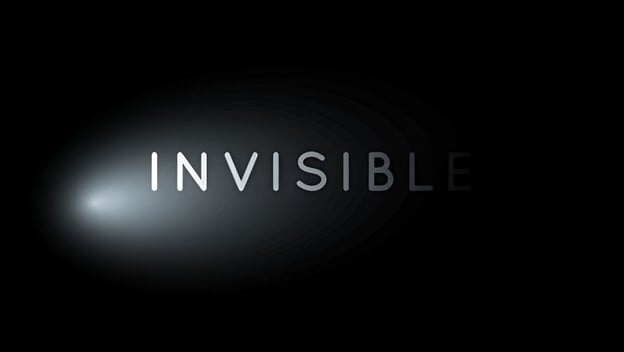Online identities continue to be at risk of vulnerabilities. Case in point: a colossal password compilation dubbed "RockYou2024" has emerged, containing nearly 10 billion unique passwords. This unprecedented leak has put the cybersecurity community and beyond on high alert—as if it was not already there—highlighting the ongoing need for robust digital security practices.
The name "RockYou2024" pays homage to the infamous RockYou data breach of 2009, which exposed 32 million passwords due to insecure storage practices. Fast forward to 2024, and the scale of the latest leak dwarfs its predecessor by several orders of magnitude. The data compilation was leaked on a popular hacking forum, where it quickly gained notoriety for its sheer size and potential impact. The file with the data, titled rockyou2024.txt, was posted on July 4, 2024, by forum user ObamaCare.
To put the magnitude of this leak into perspective, RockYou2024 contains nearly 10 billion unique passwords. The number represents a significant portion of the world's online user base, raising concerns about the security of countless online accounts across various platforms. The compilation includes passwords from numerous previous breaches, combined into one massive database, making it a treasure trove for cybercriminals.
The implications of the RockYou2024 leak are profound. For individual users, the exposure of passwords means an increased risk of account takeovers, identity theft, and fraud. Cybercriminals can use the compiled passwords to launch credential stuffing attacks, where they attempt to gain access to user accounts by trying the leaked passwords across multiple sites.
"This ongoing attack on our passwords is happening because, unlike a lot of other risks, cyber is dynamic. That means we will forever need to change, either quickly in response or thoughtfully in our own time to stay one step ahead," said Kip Boyle, vCISO, Cyber Risk Opportunities LLC. "Your next action is to turn on MFA everywhere, right away. And remember: Defeating MFA is the cyber-attacker's next goal, so be ready."
For organizations, the leak underscores the importance of implementing stringent security measures to protect user data. Businesses must ensure that they are using robust encryption methods to store passwords and encourage end-users to adopt strong, unique passwords for their accounts. Additionally, implementing multi-factor authentication (MFA) can add an extra layer of security, making it harder for attackers to gain unauthorized access.
"The RockYou2024 breach is a wakeup call for individuals and organizations alike to reevaluate their cybersecurity strategies, emphasizing proactive measures over reactive responses," said Anne Cutler, Cybersecurity Evangelist at Keeper Security. "As cyber threats evolve, organizations must prioritize protecting customer data. Today, identity applications require both authentication and end-to-end encryption to provide robust cybersecurity protection. Cybersecurity technologies protecting these environments must cover every user, on every device, from every location."
"Data shows the human element is far more difficult to protect, and often, the most error-prone element of the attack chain, therefore, organizations should focus on implementing zero-trust security architecture and a policy of least-access to prevent unauthorized privilege escalation and ensure strict enforcement of user access roles," Cutler added. "A privileged access management (PAM) platform is essential for managing and securing privileged credentials, ensuring least privilege access and preventing lateral movement in the event of a breach."
Credential stuffing attacks, in which bad actors try using a stolen password on other accounts, are a serious risk for those impacted by RockYou2024. It is critical that individuals use a unique password for each account to protect against this threat. People should always practice good cyber hygiene by using strong, unique passwords for all accounts, supported by a password manager to generate high-strength passwords and enable multi-factor authentication (MFA). A secure password manager can store MFA codes and autofill them, providing a seamless and secure experience.
"The RockYou2024 breach highlights the risk of credential stuffing, a common technique used by hackers, creating a huge exposure for both users and companies," said Narayana Pappu, CEO at Zendata."Along with using different passwords across different platforms, changing passwords often, and enabling 2FA, users can protect themselves by logging in with OAuth-based logins (login with Facebook, Google, etc., that tend to have better security) instead of creating a separate account. Companies should consider adaptive authentication methods that consider factors like device reputation, IP address, and user behavior that can help detect and prevent unauthorized access attempts."
Steps the average Jack and Jill can take to protect themselves
In light of the RockYou2024 leak, here are some essential steps anyone can take to safeguard their online accounts:
-
Change passwords: If there's a chance passwords might be included in the leak, change them immediately. Ensure that new passwords are strong and unique.
-
Use a password manager: A password manager can help generate and store complex passwords, reducing the temptation to reuse passwords across multiple sites.
-
Enable multi-factor authentication (MFA): MFA adds an extra layer of security by requiring a second form of verification, such as a text message or authentication app, in addition to a password.
-
Monitor accounts: Keep an eye on accounts for any suspicious activity. Many services offer alerts for unusual login attempts or changes to account information.
-
Education, education, education: Stay informed about the latest cybersecurity threats and best practices. Knowledge is a powerful tool in protecting against cybercrime.
"The RockYou2024 breach really drives home how important it is to have top-notch threat detection and prevention to guard against credential stuffing attacks and account takeovers," said Stephen Kowski, Field CTO at SlashNext Email Security+. "Companies need to make it a priority to set up strong MFA and real-time phishing protection to reduce the risks that come with compromised passwords. It's crucial to keep users educated and bring in AI-powered security solutions that can spot and block tricky social engineering attempts coming from multiple message channels. This kind of robust defense is key to staying ahead of the ever-changing cyber threats that pop up after massive data leaks like this one."





